Interim governments don’t appoint army chiefs: Imran Khan
9 min readImran Khan, who was ousted in April, is confident fresh general elections would sweep him back to power. He would like them to be called immediately, warning of social unrest amid a fiscal crisis, but there is a question mark over the timing.
Rana Mubashir of Aaj News and Ali Khizar of the Business Recorder interviewed Pakistan Tehreek-e-Insaf Chairperson Imran Khan on Friday about the elections and the economy. One question was when he would like elections.
Timing is significant for the PTI chief because the government has to choose a new army chief in barely a month (COAS General Qamar Javed Bajwa’s tenure ends on Nov 29). Whoever will be in power will get to choose the next army chief; either that will be incumbent Shehbaz Sharif, or a new prime minister.
“The government that has the people’s mandate should decide the army chief - not those who brought in an illicit government,” he said. “I don’t consider that a mandate. So the current COAS should continue.”
If general elections are called, then a caretaker government would take the reins. But, said Imran Khan, a caretaker government cannot appoint a COAS. This would mean the current army chief would need an extension. Imran Khan said he was not a lawyer, but perhaps there is a provision in the law for this.
“The priority is elections. In the interim you have a caretaker government,” said Imran Khan. “It can’t appoint an army chief. So as soon as you have an election and have an elected government, they pick an army chief.”
Bajwa was appointed in 2016 and his tenure was supposed to last till 2019. Nawaz Sharif granted him an extension, and that runs out in 2022.
Imran Khan is convinced that the only way to handle economic instability is by achieving political stability. But that is not possible with the government that took over by ousting him. “This government has no strength. The IMF says it’s weak,” he said. “So when the Establishment decides, this government will go.”
He argued that the Establishment brought corrupt people [read PML-N] to power and now had to decide if it would let them get away scot free. “Is it going to let these criminals get away with their cases? And then, will it let an absconder sitting abroad appoint Pakistan’s army chief.”
But they are waiting for cases to be ended and then is the nation waiting for that man who never kept anyone on merit will choose an army chief? A person who is not qualified. Should a civilised society leave the question of its national security in the hands of a criminal? Is that the wait?
Fresh elections?
Imran Khan stressed that donor and international lender agencies are worried if we continue doing what we are doing Pakistan will be headed in Sri Lanka’s direction towards a default. “Chaos will break out, there will be social unrest. What will stop this? This government can’t stop it because until you have political stability you can’t have economic stability,” he said.
This once again comes around to his argument that elections should be held. If the government gives a date, then the PTI would resign from the two assemblies in Punjab and Khyber Pakhtunkhwa that it controls.
Any plan to go back to the assemblies?
Rana Mubashir asked if Imran Khan had any plans for the PTI lawmakers who resigned after the no-confidence motion, to return to the National Assembly (and sit in the Opposition).
“Going back to the NA means that we accept a foreign conspiracy that brought our government down,” Imran Khan replied. “The day we go back, it means we accept this ‘crime minister’ and set-up. So there is no question of going back.”
Rana Mubashir asked why Imran Khan didn’t think it would have been better for the PTI to become a tough Opposition. Had they not left the field open? “An Opposition doesn’t make a difference,” Imran Khan said. “A majority does. They would have had the bills passed by a majority. Aside from that, we would have legitimized them.”
Ali Khizar said that there was an impression in the market that the PTI is placing its goals above the goals of the State. When the no-confidence vote loomed, the PTI-led government froze petrol prices. And a day before an all-important IMF meeting on Pakistan, there was an audio leak. Imran Khan parried the question and said instead that the new government should have cared about the economy which his government steered with great difficulty out of the pandemic. He brought up the KP finance minister’s laments and then reiterated that the only solution was free and fair elections.
PTI a one-man show?
Talking about the minus-1 formula, supposedly spearheaded by the Establishment to turn the party against its leader, Rana Mubashir asked whether it was applicable to the PTI as it is percieved as a one-man party. “There is no PTI without you. Suppose minus-1 takes place tomorrow, what is the strategy? Every second PTI worker wants to become the Punjab chief minister and there are backdoor meetings as well,” remarked Mubashir.
Imran Khan said that ambition in politics isn’t a bad thing but said that the much-touted formula wasn’t about his party. “The people playing the match know that they cannot compete without me and they want a tactical knock out to eliminate me from the match so they can play.”
He then moved on to the foreign funding case which could see him disqualified from politics if it is proven that the PTI took money from foreign entities or individuals, which is barred under ECP rules.
“I have never seen a more dishonest ECP,” he continued.
When it was pointed that Imran Khan appointed the incumbent chief election commissioner, Sikander Sultan Raja, he said: “We were trapped. Establishment told us to appoint him.”
He said that Raja was brought in to end the deadlock and he hadn’t heard of him before. “I have never a more dishonest person and he has damaged the credibility of ECP.”
He cited the ECP’s reluctance to use electronic voting machines that ‘eliminate 90 per cent rigging’.
He accused the CEC of being in collusion with the PML-N and PPP leadership.
“We are asking the CEC to check the history of Toshakhana gifts and funding and I can guarantee that they wont be able to find it in Nawaz Sharif and Asif Zardari’s tenure.”
He claimed that Zardari stole three cars from Toshakhana and Nawaz took one vehicle. “They have no funding while our party is donor-based and has 40,000 donors. We gather money from public but they have no record,” he said, adding that the CEC wanted to get him disqualified at the behest of his handlers.
He said that they turned the Toshakhana gifts into an issue after not finding anything compromising in his three-and-a-half-year tenure. “I challenge them to show one illegal thing in the Toshakhana case. It has also become clear that there was no foreign funding rather overseas Pakistanis had given funds. Now they say it is prohibited funding and that cannot be banned. At most, it can be confiscated.”
Karachi conundrum
The former prime minister was quizzed over his government’s performance in Karachi, where the he received 850,000 votes. Ali Khizer pointed out that the residents were disappointed with the PTI your government over its failure to improve the city. “Industrial growth begins from the coast but after industries moved to upcountry areas in 1990s, the infrastructure was not created in Karachi,” he said adding that the city residents felt bitter after putting their hopes in him.
Imran blamed the lack of development on the Sindh government, saying that they were the hurdles in the implementation of the Sindh Development Plan and Karachi Revival Plan.
“After the 18th amendment, all powers were devolved to provinces. We were not power in Sindh but still we gave it money,” he said referring to the Rs1.1 trillion development package that was unveiled with great fanfare in September 2020.
“We made an excellent plan for Bundal Island and a consortium of foreign countries was ready to transform it into a new city. We even received an NOC of Sindh.”
He said that the NOC was cancelled at the last minute. “Billions of dollars would have been earned by Sindh due to this and all this money could have entered the current account. Sindh government sabotaged it,” he said.
What the PTI chief failed to mention was that the federal government, including the president, used discrete methods to promulgate an ordinance while keeping parliament out of the loop. It led to a fierce response from the Sindh government that termed efforts to develop the island, that it claimed its property, without the provincial cabinet’s approval as unconstitutional. The development of the island would also result in major ecological impact, including the mangroves that give cover to shellfish and marine life and is a source of livelihood for local fisherfolk.
“The way Karachi is expanding unplanned, you cannot provide facilities to it,” said Imran.
Ali Khizar pointed out the deteriorating situation of the Kemari port from where two-thirds of the country’s oil enters. “If an accident takes place in Kemari, oil wont reach upcountry. This is a security risk. Why did you not work on it?”
Imran said that the question should be posed to the maritime minister during his time, Ali Zaidi. “It’s unfair that he was not allowed to explain himself. He published documents on it.”
The PTI chief acknowledged the importance of developing ports. “Look how we developed Gwadar during our government’s tenure.”
On Karachi, he underscored that the city’s will persist as long as the party that wins from rural Sindh stays in power in Karachi. “Such a government (PPP) has no interest in resolving Karachi’s problems except theft and looting. Sindh corruption has broken all records. There are cases against all leaders of Sindh.”
Accountability failure?
When asked why were such corrupt leaders not indicted during the PTI government’s tenure and whether it was a failure of the accountability process that was one of his rallying cries before coming to power, Imran said that it was NAB was not in their control.
“My entire cabinet knows that I kept trying to indict them. There were open and shut cases against them but indicting them was not in our control.
“We turned NAB independent. The only case made during our time was against Shehbaz Sharif for money laundering and funnelling it into the account of his employees.
“Even that case got stuck in NAB and the Rs16 billion case was with FIA, said Imran. “We tried for one and a half years years to get it concluded but were unsuccessful.”
He said that while his team was committed, they were unsuccessful because ‘other players took orders from other places’.
Civil-military ties
On the thorny issue of civil-military ties, imran said that equilibrium was ‘exceptional’ until 18 months before his ouster in April this year.
“If they revoke support and become neutral, then the government cannot run in Pakistan,” he said without outlining the reasons what caused the situation to deteriorate.
For the latest news, follow us on Twitter @Aaj_Urdu. We are also on Facebook, Instagram and YouTube.















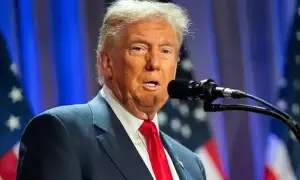




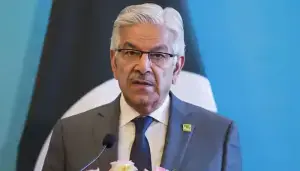
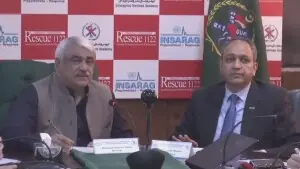
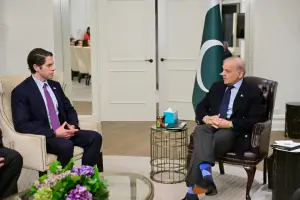
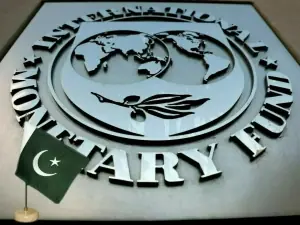
Comments are closed on this story.